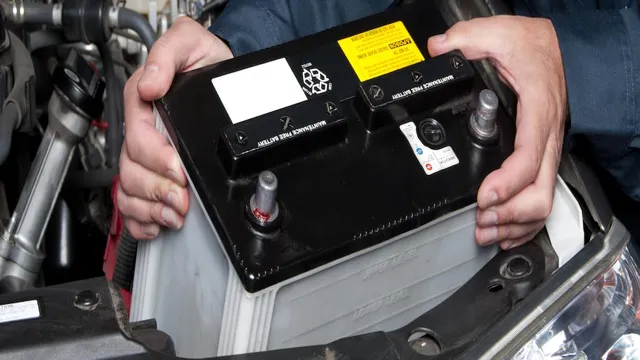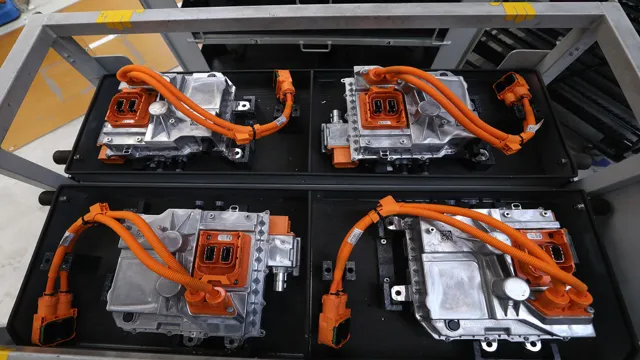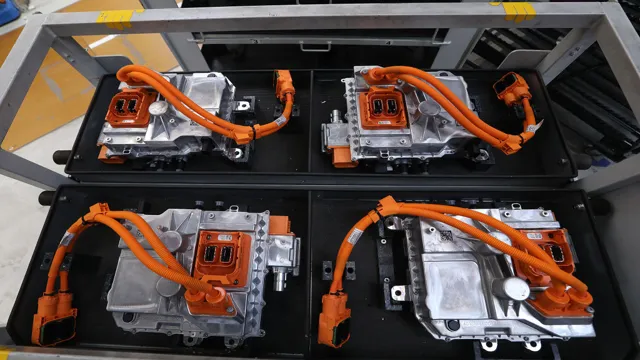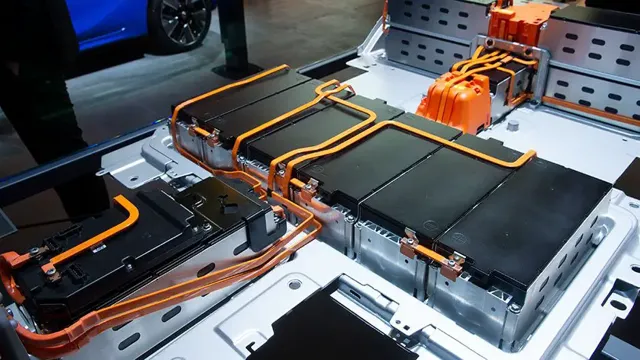The Shocking Truth About the Cost of Replacing Your Electric Car Battery: Everything You Need to Know
Electric cars have been on the rise in recent years, and for good reason. Not only do they help reduce emissions and pollution, but they also provide a smooth and quiet driving experience. However, one important consideration for electric car owners is the cost of battery replacement.
While it may seem daunting, understanding the cost of battery replacement can help you plan ahead and make an informed decision when it comes to purchasing an electric vehicle. In this blog, we’ll dive into the factors that determine the cost of electric car battery replacement and what you can expect when it’s time for a replacement. So, let’s get started!
Factors Affecting Cost
The cost of replacing an electric car battery can vary significantly based on several factors. Firstly, the make and model of the vehicle can impact the cost, with some batteries costing more than others. Additionally, the age of the battery and the level of use it has experienced throughout its lifetime can also impact the cost.
In some cases, a battery may need to be replaced due to being faulty or damaged, which can lead to costly repairs. The availability of replacement parts and the level of expertise required for the replacement can also impact the cost. It’s worth noting that some manufacturers offer warranty or replacement programs that can significantly reduce the cost of replacing an electric car battery.
Ultimately, the cost of replacing an electric car battery can be quite significant, but it’s essential for maintaining the vehicle’s performance and longevity over time. It’s essential to consider all of these factors and work with a trusted mechanic or dealership to determine the best course of action.
Battery Capacity
When it comes to battery capacity, there are a variety of factors that can affect the cost. One of the most significant factors is the type of battery being used. Different types of batteries have different capacities, and certain types may be more expensive to produce than others.
For example, lithium-ion batteries are often used in high-capacity applications such as electric vehicles, but they can be expensive to manufacture due to their complex chemistry. Another factor that can affect the cost of battery capacity is the size of the battery. Larger batteries typically have higher capacities, but they can also be more expensive to manufacture due to the increased materials and manufacturing costs.
Additionally, the way in which the battery is designed and constructed can also impact the cost. For example, batteries with advanced features such as fast charging or wireless charging may be more expensive to manufacture than those without these features. Ultimately, the cost of battery capacity will depend on a range of factors, including the type of battery, its size, and the features it offers.

Manufacturer’s Warranty
When it comes to purchasing a new product, the manufacturer’s warranty is a crucial factor to consider. A warranty provides the buyer with peace of mind, knowing that the manufacturer will repair or replace the product if it fails due to manufacturing defects. However, the length and coverage of the warranty can greatly affect the cost of the product.
Products with longer warranties usually come with a higher price tag, as the manufacturer is taking on a higher risk. Additionally, the type of warranty can also affect the cost. A basic warranty may only cover manufacturing defects, while an extended warranty may cover accidental damage or wear and tear.
It’s important to evaluate the value of the warranty and weigh it against the potential cost of repairs or replacement without it. Ultimately, choosing a product with a manufacturer’s warranty that suits your needs and budget can save you money in the long run.
Type of Electric Car
When it comes to the cost of electric cars, there are several factors that come into play. One major factor is the type of electric car you choose. Battery electric vehicles (BEVs) have a higher upfront cost than hybrid electric vehicles (HEVs) or plug-in hybrid electric vehicles (PHEVs) because they require a larger battery to power the vehicle.
However, over time, BEVs tend to be the most cost-effective option because they don’t require gasoline and require less maintenance overall. HEVs and PHEVs are generally less expensive upfront but may end up costing more in the long run due to the need for gasoline and more frequent oil changes. Ultimately, your individual driving needs and preferences should be taken into consideration when choosing the type of electric car that’s right for you.
Average Cost
The cost of replacing an electric car battery can vary greatly depending on the make and model of your vehicle. On average, you can expect to pay anywhere from $3,000 to $8,000 for a replacement battery. However, some luxury electric vehicles may cost upwards of $20,000 for a new battery.
It’s important to keep in mind that the cost of a replacement battery can also include installation fees, taxes, and other associated costs. If your electric car is still under warranty, the manufacturer may cover the cost of a new battery if it fails. It’s always a good idea to research the specific costs for your make and model before purchasing an electric vehicle.
While the upfront cost may seem high, the lower cost of maintenance and charging may outweigh the cost of a replacement battery in the long run.
Examples
When it comes to assessing the overall cost of a product or service, calculating the average cost can be a useful way of getting a sense of its affordability. Average cost is determined by dividing the total cost by the quantity of goods or services produced or sold. This type of cost analysis can be particularly helpful for businesses in determining their pricing strategies.
For example, if the average cost of producing a unit of a product is too high, the company may need to adjust their pricing to ensure that they can still make a profit. On the other hand, if the average cost is relatively low, the company may have room to lower their prices and potentially attract more customers. It’s important to note, however, that average cost shouldn’t be the only factor that businesses consider when making pricing decisions – they also need to take into account market demand, competitor pricing, and other factors that may impact sales.
Range of Costs
When it comes to the average cost of different items and services, the range can vary significantly depending on a number of factors. For example, the average cost of groceries for a family of four might be around $500 per month, while the cost of a mid-range sedan could range from $20,000 to $30,000. Similarly, the cost of a wedding can vary wildly depending on the location, the number of guests, and the type of vendors used.
While it’s difficult to give a one-size-fits-all figure for the average cost of any given item or service, it’s important to do your research and shop around to ensure you’re getting the best deal possible. By comparing prices and understanding the factors that contribute to cost differences, you can make informed decisions about where to spend your money.
How to Save on Replacement Costs
Replacing an electric car battery can be a daunting task, especially since it is often one of the most costly parts of owning an EV. However, there are ways to save money on replacement costs. One option is to purchase a used battery instead of buying a brand new one.
While the battery will have some wear and tear, it may still be in good condition and can be significantly cheaper. Another option is to consider a battery rebuilding service, which can replace the worn-out cells in the battery and bring it back to life. Additionally, proper maintenance of the battery can extend its lifespan and delay the need for replacement.
This includes avoiding extreme temperatures, avoiding full charges and discharges whenever possible, and keeping the battery charged between 20-80% capacity. By taking these steps, you can reduce the cost of replacing an electric car battery and increase the overall lifespan of your EV.
Regular Maintenance
Regular Maintenance Regular maintenance is crucial to saving on replacement costs. Neglecting a vehicle, appliance, or any other equipment can lead to costly repairs or even the need for a complete replacement. Taking proactive measures like regularly changing the oil in your car or cleaning air filters in your AC unit, can help prevent wear and tear, extend the life of your equipment, and save you money in the long run.
It’s like going to the dentist for regular check-ups to avoid expensive dental work down the road. By investing in regular maintenance, you’re taking care of your equipment, ensuring it’s performing at its best, and avoiding potentially costly repairs or replacements. Plus, maintaining your equipment can also improve energy efficiency, which will save you money on your energy bills.
Remember, a little bit of maintenance can go a long way in keeping your equipment running smoothly and your wallet happy.
Replacement vs. Repair
Facing a broken appliance at home is never fun, and it can be stressful thinking about whether it’s worth repairing or if it’s better to replace it with a new one. But don’t worry, there are ways to save on replacement costs. One option is to seek professional advice, especially if the appliance is expensive or necessary.
They can assess the issue and provide objective guidance on whether to repair or replace, taking into account the age and current condition of the appliance. Another way to save money is to consider repair costs. If the cost of repair is significantly lower than the replacement cost, it is probably worth repairing.
Finally, consider alternatives like refurbished or pre-owned appliances, which can save a significant amount of money if they are purchased from a reputable source. Remember, taking time to evaluate repair versus replacement options can save you money in the long run, so don’t rush into a decision.
Conclusion
In the world of electric cars, the cost of replacing a battery is often a major concern for consumers. But fear not, fretful EV enthusiasts! While the initial price tag of an electric car may be high, the cost of replacing a battery is actually lower than most people think. Plus, with the growing popularity of electric cars, advancements in battery technology, and the potential for battery recycling, the future is looking bright (and affordable) for electric vehicle owners.
“
FAQs
How much does it cost to replace an electric car battery?
The cost of replacing an electric car battery can vary depending on make and model, but can range from $3,000 to upwards of $10,000.
How often do electric car batteries need to be replaced?
Electric car batteries are designed to last for many years, with most manufacturers offering warranties for 8-10 years or 100,000 miles. However, factors such as driving habits, climate, and maintenance can impact battery life.
Is it possible to repair an electric car battery instead of replacing it?
In some cases, it may be possible to repair certain components of an electric car battery instead of replacing the entire battery pack. However, this can depend on the particular make and model of the car and the extent of the damage.
Are there any government incentives or programs available for the cost of replacing an electric car battery?
Depending on where you live, there may be government incentives or rebate programs available to help offset the cost of replacing an electric car battery. It’s worth checking with your local authorities or electric utility provider to see if there are any available options.






